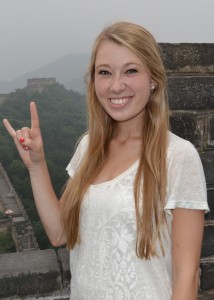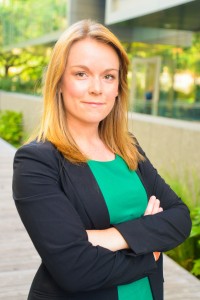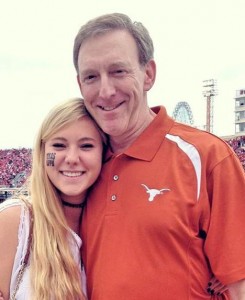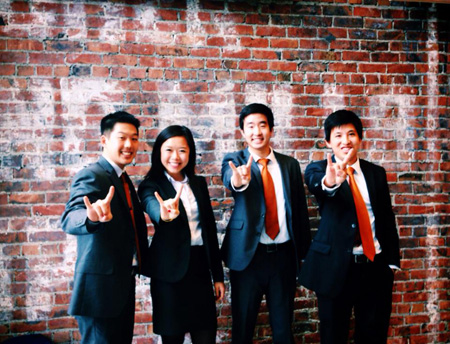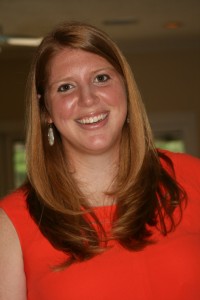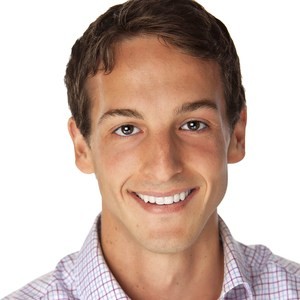 Mark Rogers, BHP ’07, followed his passions as they led him from banking in London to opening a charter school in Austin. He held on to the confidence and inspiration he received from his BHP peers as he made various career changes and has now become an award-winning teacher. Mark will deliver the keynote address at Discover BHP, an event for all newly-admitted BHP students, this coming Saturday.
Mark Rogers, BHP ’07, followed his passions as they led him from banking in London to opening a charter school in Austin. He held on to the confidence and inspiration he received from his BHP peers as he made various career changes and has now become an award-winning teacher. Mark will deliver the keynote address at Discover BHP, an event for all newly-admitted BHP students, this coming Saturday.
Could you take me through your career path since graduation, and how you ended up teaching at Meridian World School in Austin?
I had an internship at Morgan Stanley in London after my junior year at UT. Living in Europe was a dream of mine ever since my best friend moved to Europe when I was 16. He moved to London and I visited him and became entranced by the city. My goal was to live and work there ever since I was a sophomore in high school. When internship time was coming around, I emailed various managing directors within Morgan Stanley and sent them my CV and lots of cover letters. By the end of the process, they decided to give it a shot. The summer went really well and it was everything I hoped it would be both personally and professionally. I got to travel, meet a lot of very interesting and diverse people, and I fell in love with the idea of moving abroad. I received a full-time offer, and it was only then that I began to consider what that meant – leaving all family, all friends, and being 6,000 miles away. That was very tough because I think the gravity of it never hit me until I got the offer. I accepted the job and moved, and despite how difficult the process of moving that day and saying goodbye to my family was, as soon as I landed and as soon as things started to get going, it did feel right. It did feel like I made the right choice.
The two years go by, and I’m ready to move back, and I go to a friend’s wedding and that’s where I met my wife. It was there, for the first time ever, that someone opened my eyes to education as a full-time career choice that could be so fulfilling and still economically viable. I decided to get my teaching certificate and see what happened. I did get a job in education and helped open a charter school in 2011. I still teach Calculus, Statistics, and Theory of Knowledge there today.
When you were in college, did you think this is where your career path would lead you?
No way. I wouldn’t have felt confident enough to take these risks if I didn’t surround myself with people in BHP who took calculated risks like these, and the teachers who encouraged risk-taking and creative thinking. There was a good entrepreneurial spirit about the program. Even though I left to go to Morgan Stanley, I feel like I would still be in a job that I felt like I had to be in if I hadn’t been exposed to those calculated risk-takers in BHP.
Did you experience any culture shock, starting out your post-graduate career in London
Oh yeah. Going to work at a bank, you need a suit. I had my two suits from college – one was a holdover from high school, the other I had gotten in college. I had these two suits and then I had maybe 10-11 dress shirts. I go into the office wearing my college suit and one of my colleagues says “Rogers, you’re wearing your dad’s suit today, huh?” In America, especially men wear baggier suits and so every time I came in in that suit, he called it my dad’s suit. I maybe lasted two weeks before I took my first paycheck to buy myself a suit that wasn’t baggy so my colleague would stop saying that I was wearing my dad’s suit.
How did your BHP education prepare you to succeed in such diverse industries?
The smaller class size promotes discussion, and it’s that type of exposure to different ideas and student engagement, especially, where it’s just better to learn. In classes that get above 40, it gets tough on the teacher and that type of conversational learning doesn’t scale. In small classes, you had a relationship with your peers and your teachers.
What are some of the challenges and rewards of a career in education?
The challenge is that I know exactly what an education can do for you, and on the other side of that coin, I know what missing out on education can do for you economically. So the biggest challenge for me is helping students who need significant help getting to that point where they have the skills necessary to be successful. And that’s incredibly challenging because you, at times, are making up knowledge and skills gaps that span years. I know how important it is, specifically with math, especially with their finances as they get older. I think about that when I’m working with these kids and we’re trying to close gaps. It’s on the front of my mind.
When you actually fill the gap, when they gain the skill, and when they start performing on grade level, rising to challenges, and gaining confidence, there’s just no better feeling. You get these success stories. I have students who were two grade levels behind, and now they’re performing a grade level above. It’s a two-way street. They just do such a good job of staying the course.
Do you have any advice for current BHP students?
Small changes made over a long period of time can yield the most incredible impact. I guess the advice is: think about something you want to change that’s really small, that you can tackle, but do it every single day. You’ll look back in a year or in two years, and you’ll think back to that day you decided to make the change, and it will amount to something that has greatly improved your life.
*This post was written by Rachel Solomon, a BHP senior and co-chair of Discover BHP 2015.

